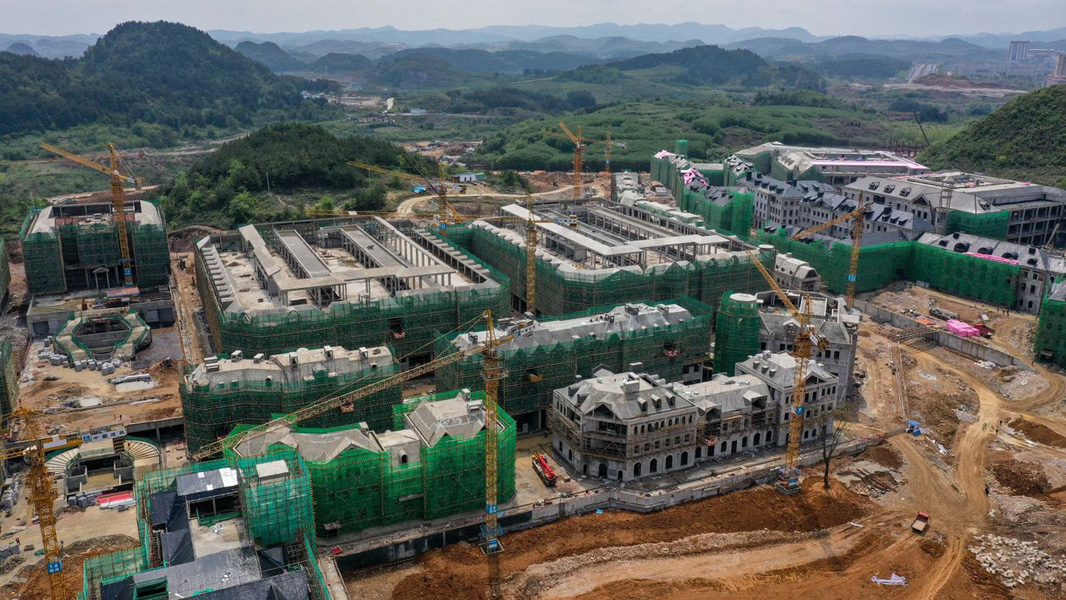Report: Huawei is Now “in a State of War”
- Paul Thurrott
- Jun 08, 2020
-
9

A new report says that Huawei now considers itself in “a state of war” thanks to ever-more aggressive U.S. sanctions that are aimed at preventing the firm from overtaking America’s tech leadership.
The stakes are clear, The Wall Street Journal reports: Either China or the United States will control the next-generation global networking infrastructure and that, going into 2018, Huawei was the dominant player in this market. The U.S. fears that China could order Huawei to use its gear to spy on western countries or sabotage their communications. But Huawei says that’s never happened and never would happen. And Beijing says there are no Chinese laws that require that behavior, contrary to U.S. assertions.
As you may recall, Huawei co-founder Ren Zhengfei’s daughter, Huawei CFO Meng Wanzhou was detained in Canada in December 2018 at the request of the U.S. because of alleged violations of its sanctions against Iran. And since then, the U.S. has aggressively expanded its pressure on Huawei, from blacklisting the firm from selling its products in the U.S. to preventing U.S.-based companies from doing business with the company.
Windows Intelligence In Your Inbox
Sign up for our new free newsletter to get three time-saving tips each Friday — and get free copies of Paul Thurrott's Windows 11 and Windows 10 Field Guides (normally $9.99) as a special welcome gift!
"*" indicates required fields
This is well known, of course. But the WSJ report, which is based on dozens of interviews with current and former Huawei employees, associates of Mr. Ren, internal Huawei documents, and interviews with Mr. Ren, provides the best-yet picture at Huawei’s strategy for dealing with the U.S. actions against it.
According to this report, when his daughter was arrested, Mr. Ren was ready to announce a sweeping reorganization of his firm that would decentralize its networking operations just as the U.S. started to take action to hem in the firm. He went ahead with those plans regardless, handing more control to regional leaders in over 170 different countries and giving them the ability to operate autonomously. The plan will take five years to complete, and it was inspired by U.S. military management philosophies.
“People assigned to the Pentagon may not necessarily have a bright future, while people working in the field may get promoted faster,” Mr. Ren told the publication. “It’s going to be the same at Huawei.”
Ren also visited his firm’s research-and-development center in Hangzhou and demanded that they learn from “Google and surge forward, killing as you go, to blaze us a trail of blood.” The company, he told them, had “entered a state of war.”
Ren’s stance isn’t anti-American. In fact, he loves America and wants the employees from his firm to model themselves after the most innovative American companies.
“I have been to the United States of America many times and each time I visit I’m deeply impressed by the bold, innovative spirit of the American people,” he wrote in a 1998 essay. “Through the positive impact of the different cultures of immigrants over many generations, a culture of innovation thrives in the U.S.”
But when Huawei entered the U.S market in the early 2000s, the pressure from Washington began. Huawei’s Ken Hu responded by writing an open letter in which he invited the U.S. government to investigate its worries that the firm would help the Chinese government commit espionage. And the House Intelligence Committee responded by publishing a 52-page report “warning that Huawei and its main Chinese rival [ZTE] couldn’t be trusted to be free of Beijing’s influence.”
The evidence for this recommendation is, of course, light, and it amounts to fear of the unknown and different. But it’s an interesting read.
“Huawei … cannot be trusted to be free of foreign state influence and thus pose a security threat to the United States and to our systems,” the report notes. The report also complains about “the unfair trade practices of the Chinese telecommunications sector,” a desire for Chinese firms in general to be “more open and transparent,” and “the risk posed by telecommunications companies with nation-state ties or otherwise not clearly trusted to build critical infrastructure.” Worse, it says that there are no “mitigation measures” that could fully address its concerns.
Ren’s strategy for countering the U.S. actions is comprised of three parts, the WSJ says: Engage foreign media, battle on the legal front, and invest in technology. I’ve experienced the tip of that first part, which is described as “a media charm offensive,” and mostly involves making the jocular Mr. Ren available for interviews.
The legal angle first came to light in March 2019 when Huawei finally pushed back with lawsuits, the first of which challenged a defense act that blocked federal agencies and contractors from buying Huawei products. That act, the firm said, was unconstitutional because it convicted Huawei of a crime through new legislation. Most interesting, the lawsuit was filed locally and without the approval of Huawei’s upper ranks, something that would have been impossible before Ren decentralized operations.
And Huawei has had plenty of success securing 5G contracts despite U.S. pressure: The firm now has over 90 agreements to build 5G infrastructure worldwide, and once the pandemic ends, Mr. Ren says he’s “actually concerned that we may not be able to produce enough [telecom] equipment to meet these needs.”